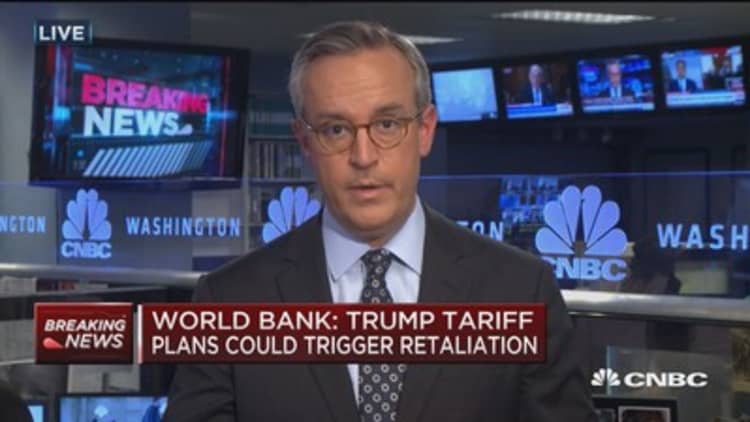
Talk of a "border adjusted" tax has gone from the sidelines to center stage in Washington, which has a lot of people asking: What is it exactly?
House Speaker Paul Ryan and members of President-elect Donald Trump's transition team met Monday night for 2 1/2 hours to discuss the House GOP's corporate tax reform plan — including a controversial provision that would essentially subsidize exports and tax imports.
Emerging from the meeting, Trump's Chief Strategist Stephen Bannon told Reuters that they discussed "border adjustability," which is one of the key provisions of Paul Ryan's tax blueprint.
Currently, U.S. corporations are taxed on their worldwide profits at 35 percent. The House GOP plan would change that radically.
The new tax formula would tax domestic revenue (minus domestic costs) at a much lower rate of 20 percent. The net effect would be one that favors exports over imports.
The change would convert the country's tax system to a "territorial" system rather than a worldwide tax system, making it similar to what all of America's major trading partners do.

It's meant to create incentives for domestic production, because companies also would no longer be able to reduce their taxable income by deducting their overseas expenditures. The plan would essentially subsidize exports, and lead to a 20 percent tax on imports for corporations.
That's why retailers are very opposed to border adjustability — a large percentage of the products they sell are imported.
But economists who support the tax say the policy would lead to a sharp rise in the value of the dollar — anywhere from 20 percent to 25 percent. As a result, retailers' costs will go down so much that it will be a wash to consumers, they say.
Many CEOs worry whether the economists are right in that assessment, however.
The authors of Ryan's tax blueprint, called "A Better Way," argue that U.S. trading partners subsidize exports through their taxation system, and the GOP changes would even the playing field for U.S. manufacturers.
America's major trading partners don't use an income-based tax system, but rather a sales-tax system known as a value added tax or a VAT.


